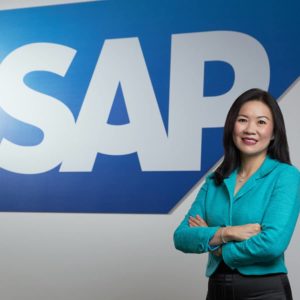Do millennials have a chance?
26th April 2021 | Eileen Chua
“When we listen and celebrate what is both common and different, we become a wiser and more inclusive and a better organisation” – Pat Wadors, head of HR at LinkedIn.
At SAP, we have set ourselves a target of achieving 10% of young talent in our workforce in South East Asia (SEA) by 2023. This is a two-fold increase from where we are today and a vital pillar to support our company’s ambition to be the leading business-application cloud company.
Millennials have endured unsavoury comments as being lazy, entitled, distracted or worse; though, in the same breath, we also hear about them being tech-savvy, ambitious and collaborative. Much has been written about the advantages of an intergenerational workforce, and having millennials on the team means that employees bring different characteristics and backgrounds to the table; they are also more likely to have varied experiences and idiosyncrasies. Consequently, a company with higher workplace diversity will benefit from having varied perspectives and new ways of thinking, which is highly beneficial as companies are forced to become more agile in navigating mounting uncertainties in the economic climate.
On the one hand, interactions among generations with different experiences and perspectives can foster creativity and innovation. (Meredith et al., 2002) On the other hand, generational differences can lead to negative organizational outcomes such as conflicts, misunderstanding, and miscommunication (Smola & Sutton, 2002). As a result, organizations and practitioners are expressing interest in identifying ways to manage people from several different generations, and to better adapt the workplace to this multigenerational workforce (Parry & Urwin, 2011).
Broadly speaking in SAP, there are three broad generational categories:
- Baby boomers aged approximately 47 to 62 years old
- Generation X, aged 26 to 46
- Millennials 25 and under
Since the inception of the SAP Sales Academy programme, our workforce in Singapore now comprises more than 30% of millennials with most in customer-facing positions. All were graduates of the prestigious Academy AE programme and started their sales career with a high degree of enthusiasm, thinking that this could be a springboard to higher-level management and executive positions. These individuals were recruited and handpicked after having demonstrated the potential to have mindsets that underpin best-practice behaviours among top Professionals (Squire 2009).
However, millennials are viewed as a liability to have on a team where essential attributes like experience, maturity, accountability and execution excellence rank high. This topic concerns me as I now have a larger team under my care, more diverse than ever with variances in their work perspectives, values, motivators and working styles which can prove challenging to manage with a one-size-fits-all approach.
My research reinforced that leading multi-generational teams requires different leadership styles, and adjusting strategies to lead each group demands a deeper understanding of the three distinct groups which make up SAP’s talent pool. As a sales leader I have found myself having to adjust my management and coaching style, leading to treating employees differently but still equitably.
I have established a diverse team over the past four years comprising a motley crew that is not only multi-talented and intergenerational but, most crucially, consistently high performing. My promotion this year bears testimony to SAP Singapore’s strong leadership bench and enduring culture of people development and growth. It was revealed that this was a key asset which stood out in my Managing Director interview as the other candidates were solely focused on revenue and customer-satisfaction targets but did not have a strong talent development agenda.
I have a daunting task ahead of me to lead a country in this next phase of growth amidst these challenging times and my immediate priority is to encourage a culture which offers employees experiences that will enable them to learn and finally to lead. I will be looking to make changes to the current team set-up which includes recognising and rewarding talent with a promotion of a millennial to my leadership team.
The company is now at a crossroads where the young talent who have performed well are demanding to be promoted, though some still lack the maturity required to lead teams and handle complexities. The Generation Xers are feeling insecure about their identity and the value of their experience as they find themselves navigating situations where key decision-makers of their customers are millennials.

The theme of my research is to explore the extent to which companies need to adapt and change to cater to a multi-generational workforce, define what the distinct differences really are using facts data, and in the process also draw out similarities. I will look at how stereotypes and unconscious bias skew realities, responses and attitudes. My research seeks to find the right balance in managing, motivating and retaining SAP’s total workforce to get optimal results from this changing generational mix.
This research also aims to contribute a local perspective to leaders who are still trying to crack the code in managing an increasingly complex and diverse workforce with different styles of working. I hope to explore leadership lessons on the benefits of being inclusive and agile in the face of an ever-changing and complex environment; study variances in order to manage expectations, influence attitudes and change the competency reference for leadership in the future of work.
PLEASE NOTE: Subscriber-only content – To read the full article, please login or purchase a subscription. Subscription Options Login


